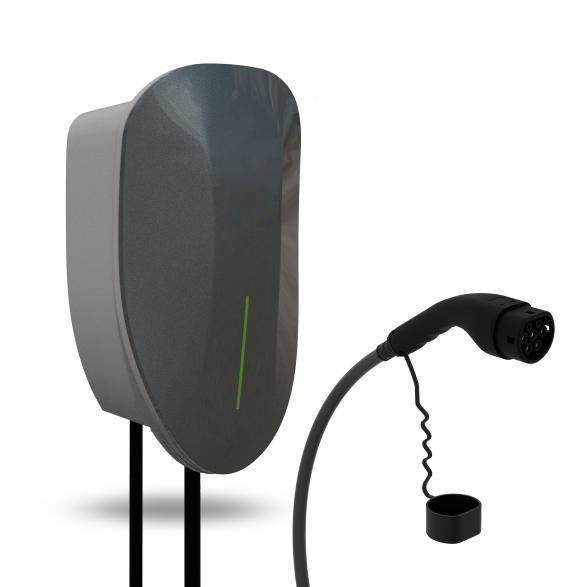AC EV Charger: The Future of Electric Vehicle Charging
2025-04-14
As the world shifts towards sustainable energy, electric vehicles (EVs) are becoming an increasingly popular choice for eco-conscious drivers. Alongside the growth of electric vehicle adoption, there has been a growing need for efficient and reliable charging solutions. Enter the AC EV charger, one of the most common types of charging stations available today. These chargers are crucial in powering up electric cars, allowing drivers to enjoy the benefits of greener transportation.
What Is an AC EV Charger?
An AC EV charger (alternating current electric vehicle charger) is a type of charging station used to replenish the battery of an electric vehicle using standard alternating current (AC) power. Unlike DC fast chargers, which provide direct current (DC) power for faster charging, AC chargers typically deliver a slower but more accessible charging option. They are most commonly found in home garages, public charging stations, and workplaces.
The charging speed of an AC EV charger can vary depending on the power output, typically ranging from 3.7 kW to 22 kW. For home use, lower-powered chargers (usually around 7 kW) are more common, while commercial stations may offer faster charging capabilities.
Why Choose an AC EV Charger?
Accessibility and Convenience
One of the main benefits of AC EV chargers is their accessibility. Most homes are already equipped with standard electrical outlets, meaning that with the right adapter and installation, you can charge your electric vehicle at home. This convenience eliminates the need to rely on public charging stations, giving you more control over when and where you charge your vehicle.
Cost-Effective
Compared to DC fast chargers, AC chargers are generally more affordable to install and maintain. This makes them a great option for homeowners or businesses looking for a cost-effective way to provide charging for EVs. Additionally, since AC chargers use existing electrical infrastructure, installation tends to be more straightforward, reducing the complexity and cost of setup.
Sufficient for Daily Use
For most EV owners, an AC EV charger provides ample power for daily driving needs. If your commute is within the range of your vehicle’s battery capacity, overnight charging on a 7 kW AC charger is often more than enough to fully recharge the battery. Many people use their EVs for short-distance travel, meaning they rarely need the fast charging offered by DC chargers.
Durability and Reliability
AC EV chargers are built to be durable and reliable, designed to handle everyday use in a variety of conditions. Whether installed outdoors or in a garage, they are designed to withstand harsh weather conditions and ensure long-term performance.
How Does an AC EV Charger Work?
AC EV chargers work by converting the AC power from your home’s electrical system into DC power that can be stored in your electric vehicle’s battery. The process of charging takes place in two stages:
1. Power Conversion: The charger takes the alternating current (AC) from the grid and passes it through a rectifier to convert it into direct current (DC).
2. Battery Charging: The DC power is then delivered to the EV’s onboard charger, which regulates the flow of electricity into the battery, preventing overcharging or damaging the battery.
The charging speed is typically determined by the power rating of the charger and the maximum charging rate supported by the vehicle.
Types of AC EV Chargers
1. Level 1 Chargers: These are the simplest form of AC charging, using a standard 120-volt outlet. While they are the most accessible, they charge very slowly, typically adding 2-5 miles of range per hour of charging.
2. Level 2 Chargers: These chargers operate on a 240-volt circuit and provide much faster charging speeds than Level 1. A Level 2 charger can add 10-60 miles of range per hour, depending on the vehicle and charger power output.
Level 2 chargers are the most popular choice for home installations and public charging stations, as they offer a balance between charging speed and cost.
The Future of AC EV Charging
As electric vehicle adoption continues to rise, so does the need for more efficient and widespread charging infrastructure. AC EV chargers will play an essential role in this transformation, particularly in residential and workplace settings. With the continued advancements in battery technology and grid integration, future AC chargers will likely become even faster, more efficient, and more affordable.
Moreover, the integration of smart features into AC EV chargers, such as mobile app control, energy monitoring, and remote diagnostics, will enhance the user experience. These innovations will help EV owners maximize charging efficiency and further integrate electric vehicles into the larger ecosystem of renewable energy and sustainable living.
Conclusion
AC EV chargers are an essential part of the electric vehicle revolution, offering an accessible, reliable, and cost-effective way to keep your electric car powered up. Whether you're looking for a home charging solution or a convenient option for your business or community, AC chargers provide the flexibility and efficiency you need. As the world continues to move toward cleaner energy, the role of AC EV chargers will only become more important, ensuring that electric vehicles remain a practical and sustainable choice for drivers everywhere.



